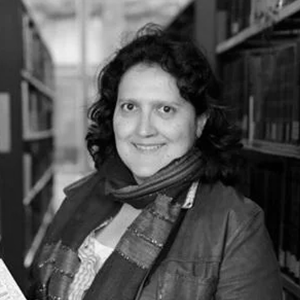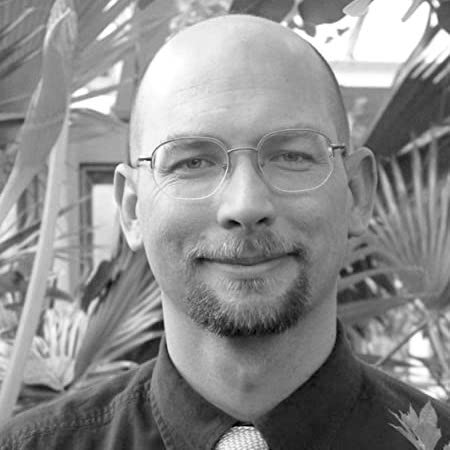James Ramey received his Ph.D. in Comparative Literature and Film Studies from the University of California, Berkeley, in 2007. He is Full Professor in the Humanities Department at the Metropolitan Autonomous University, Cuajimalpa Campus (UAM-C), in Mexico City. He heads up the Master’s and Doctoral program “Literature and Film” for the UAM-C and is the campus coordinator of the Writing Across the Curriculum program. He has been a member of Mexico´s National System of Researchers (SNI) since 2010 and is chair of the Research Group "Expression and Representation", as well as of the international film studies network "Red de Cuerpos Académicos que investigan sobre Cine (Red CACINE)". He has published more than fifteen refereed book chapters and articles in journals including Comparative Literature, James Joyce Quarterly, Comparative Literature Studies, The Latin Americanist, Nabokov Online Journal, College Literature, Bulletin of Spanish Studies, and Studies in Spanish and Latin American Cinemas. His most recent co-edited volumes are México imaginado: Nuevos enfoques sobre el cine (trans)nacional (CONACULTA-UAM, 2011) and Mexican Transnational Cinema and Literature (Peter Lang, 2017). In 2004 he received the A. Owen Aldridge Prize for an essay on Vladimir Nabokov´s Pale Fire from the American Comparative Literature Association. In 2014 he founded the Center for Writing and Argumentation of the UAM-C, the first writing center at a public university in Mexico. In 2016 he became coordinating editor of the Peter Lang book series, "Transamerican Film and Literature". He is currently writing a book called Micro-Modernism: Parasitic Textuality and Posthumanism, a study of intertextuality conceived as a form of parasitism in works by James Joyce, Jorge Luis Borges, Vladimir Nabokov and Luis Buñuel. He was a member of the Organizing Committee of "Joyce Without Borders", the 2019 North American James Joyce Symposium, held in Mexico City in June, 2019.

In his seminal 1967 Of Grammatology, Jacques Derrida defines his major figure of the "supplement" as a parasitic form of thinking: "the supplement is nothing, it has no proper energy, no spontaneous movement. It is a parasitic organism, an imagination or representation which determines and orients the force of desire." He suggests that Jean-Jacques Rousseau thinks of writing as a “simple ‘supplement to the spoken word’”, and makes his radical claim: “Either writing was never a simple ‘supplement’, or it is urgently necessary to construct a new logic of the ‘supplement’. It is this logic that will guide us further in reading Rousseau”. In Derrida’s later landmark essay, “Signature, Event, Context”, this figure of speech returns in revised form as the West’s “logic of the parasite”. Derrida argues that the West has evolved a false logic that situates writing as supplemental or secondary to speaking, and proceeds to attack this logocentrism as the core of what he calls the West’s misguided “metaphysics of presence”. This critique of the parasitic logic of Western metaphysics in Derrida’s thought is central to later articulations of posthumanist thinking, including those of Michel Serres, Niklas Luhmann, and Cary Wolfe. Indeed, it may not be unfitting to describe this branch of the field as “parasitic posthumanism”.
What I claim in this paper is that James Joyce and Jorge Luis Borges share a remarkable preoccupation with the metaphysics of parasitism in art and thought, and that this preoccupation is a kind of precursor to parasitic posthumanism. As I have argued elsewhere, Joyce explores the figure of the parasite in a variety of ways: in the human forms of spongers and thieves; in the nonhuman forms of lice and syphilis; and in the metaphysical forms of intertextuality and metempsychosis. Although many valuable comparative studies of Joyce and Borges have been published, this paper will analyze for the first time the posthumanist implications of Borges’s biological conception of literary history as a “living labyrinth” and of literary immortality as a parasitic entity that “fastens upon souls like a root”—and the usefulness of these notions for understanding Borges’ metaphysics of parasitism in relation to Joyce’s.

Ecuadorian-Mexican, and with a Ph. D. in Ibero-American Literature, Hadatty is full researcher at UNAM’s Institute of Philological Research since 2003. She has taught at Claustro de Sor Juana University, at Autonomous Metropolitan University-Xochimilco (UAM), and at the Technological Institute of Monterrey (ITESM). Her published works include Autofagia y narración: estrategias de representación en la narrativa iberoamericana de vanguardia (Madrid, Vervuert-Iberoamericana, 2003), La ciudad paroxista. Prosa mexicana de vanguardia (Mexico, UNAM, 2009) and Prensa y literatura para la Revolución. La Novela Semanal de El Universal Ilustrado (Mexico, UNAM/El Universal, 2016). She is co-editor of the recently published volume Historia de las literaturas en México, 1900-1940, first volume: Twentieth century, titled La revolución Intelectual de la Revolución mexicana (Mexico, UNAM, 2019).
Along with Dr. María Andrea Giovine, she is a founding member and coordinator of ESPIRAL, a permanent research seminar about Latin American magazines, jointly run by UNAM’s Institute of Philological Research.
Her research fellowships and internships have taken her to Antigua, Guayaquil, Quito, Austin, Los Angeles, Berlin, and Paris. Between 2013 and 2014, she was a guest researcher with the project “Letras y utopía: estética y representación de la Revolución mexicana y la República española en la literatura del Ecuador en los años ’30” at the San Francisco University of Quito.
She currently heads two research projects: individually, the compilation of the personal writings of the Guatemalan-Mexican writer Arqueles Vela; and collaboratively, the project "Las culturas de la prensa en México (1880-1930)", which she co-heads alongside Dr. Viviane Mahieux from UC-Irvine, with the participation of scholars from 15 Mexican and North American universities, and with the support of a UC-Mexus Conacyt Fellowship, 2017-2020.
She has been a keynote speaker at the Michoacan University of San Nicolás de Hidalgo, the Andes University Simón Bolivar in Quito, San Francisco University of Quito, the Center for Latin American Studies CIESPAL, the National Major of San Marcos, Lima, and the Sorbonne Nouvelle University Paris. Since 2000, she has centred most of her research on Latin American avant-garde movements, and has published numerous articles about these movements in Mexico, Ecuador, Peru, Cuba, Argentina, Spain and Brazil. She is a member of the National Researchers’ System (SNI) in Mexico, and of the International Association of Ecuadorian Studies.
In the area of European avant-grade studies, it is a commonplace to consider 1922 as an annus mirabilis—within just one year there appeared works such as Virginia Woolf’s Mrs. Dalloway, James Joyce’s Ulysses, T. S. Eliot’s The Waste Land, and Rainer Maria Rilke’s Duino Elegies, as well as an installment of Marcel Proust’s In Search of Lost Time.
In our experience, it is far less common to see literary historiography taking the same stance on that “year of miracles” or “of marvels” in terms of the Latin American avant-garde. This is because these movements have been read and valued as epiphonemic— anachronistic traces or belated adaptations of Europeanisms. It is impossible, however, to ignore the simultaneous publication of literary works that mark a rupture, such as Trilce, by Peruvian author César Vallejo; 20 poemas para ser leídos en el tranvía, by Oliverio Girondo, first published in France and La señorita etcétera, by the Guatemalan-Mexican Arqueles Vela; as well as lesser-known works like Andamios interiores: poemas radiográficos, by Manuel Maples Arce and El soldado desconocido, by Nicaraguan writer Salomón de la Selva. We should also remember that the origins of the trend known as estridentism dates back to the same period, with its manifestos/murals no.1, 2 and 3 (from December 31,1921 to February and July 1922) and how it was in this year that the Week of Modern Art took place in Brazil. This lecture will value the encompassment of temporalities of these movements in Europe and Latin America and will comment on the general characteristics of the local works published in that year.

Full professor of Spanish American Literature and Culture, at Brigham Young University. He is author of the book Cult of Defeat in Mexico’s Historical Fiction: Failure, Trauma, and Loss. New York: Palgrave Macmillan, 2012; editor of Asaltos a la historia: reimaginando la ficción histórica hispanoamericana. Mexico: Ediciones Eón, 2014; and co-editor of TransLatin Joyce: Global Transmissions in Ibero-American Literature. Eds. Brian L. Price, César A. Salgado, and John Pedro Schwartz. New York: Palgrave Macmillan, 2014; and The Lost Cinema of Mexico: Reading 1960s-80s Mexican Cinema Against the Grain. Eds. Olivia Consentino and Brian Price. Gainesville, FL: University of Florida Press, 2021.
Most of his teaching and research revolves around Spanish American culture and literature, with an emphasis on contemporary Mexican literature, film, music, and food. He has taught seminars on countercultural music and literature, the historical novel, commercial cinema, and comparative literature. He is currently writing a book on rock and roll and literature in Mexico, under the provisional title: ¡Viva Rockotitlán!: Rock Literature in Mexico (1960-2010).
This paper examines the past and present of Joycean influence on Mexican writers by establishing the routes by which the Irishman's work arrives in country, discussing how Joyce qua cipher of literary modernity becomes a central element of cosmopolitan literary production, and identifying several literary trajectories that creatively engage with Joyce in recent publications.

An author, translator and educator, Collin was born in Brazil in 1964. She earned a BA in Piano/Performance (EMBAP, 1985), a degree in Portuguese and English Languages (UFPR, 1989), and a BA in Classical Percussion (EMBAP, 1990). She holds a Master’s Degree in English Literature (UFPR, 2003), a Ph. D. in Linguistics and English Literature (USP, 2003) and two Postdoctoral Degrees (USP 2010/2017) in Irish Literature
As a creative writer, she has published over twenty books: Rosa que está (2020), Fascinação (2019), and A peça intocada (2017) are among her latest. Her works have been included in national and international anthologies (in the USA, Germany, France, Mexico, Uruguay, Argentina, and Peru) and she has been awarded several literary prizes, such as the Prêmio Jabuti/ Poesia, in 2016. She is a retired professor from the Federal University of Paraná (UFPR), and currently conducts research on the work of Irish poet Mary O’Donnell at the W.B. Yeats Chair of Irish Studies, University of São Paulo.
A selection of Luci Collin’s poems, in Spanish, is available here.
It is self-evident: no other Modernist writer, either in English or in any other language, has attracted greater attention, and more intensely, than James Joyce has. And Brazilian audiences certainly have not been impervious to the great emotion and excitement that the Irish author generally arouses in readers. In general terms, this talk intends to comment and illustrate how Joyce’s literary works—as well as celebrations like Bloomsday of Mollysday— are increasingly being promoted by a number of Joycean institutions (such as the ABEI – the Brazilian Association of Irish Studies and the W. B. Yeats Chair of Irish Studies at USP) in order to discuss and celebrate Joyce’s legacy in Brazil.